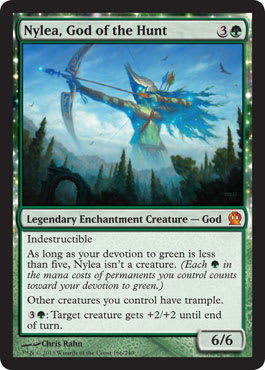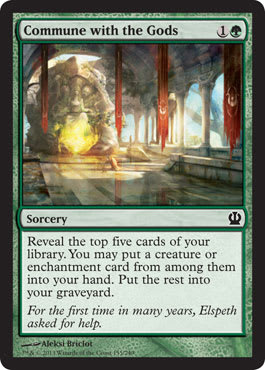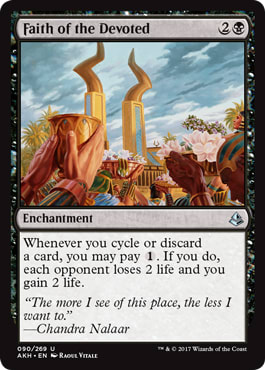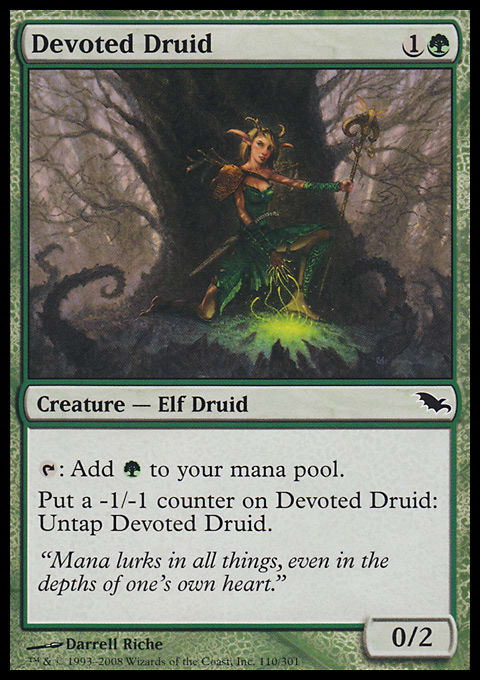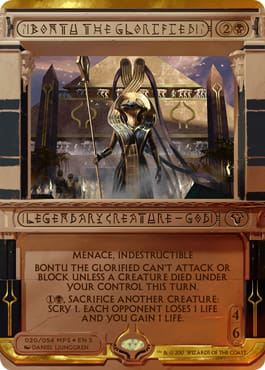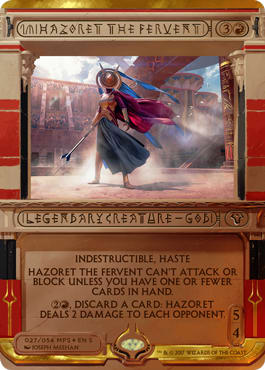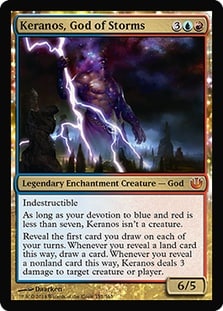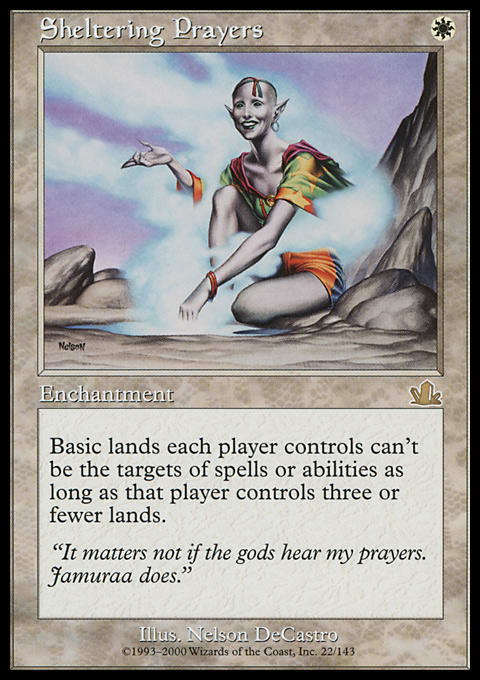—from the Amonkhet story, “Trust,” by James Wyatt
And the Word Became a Trading Card
When Theros released in the fall of 2013, Magic players were given a brand new creature type to summon onto the battlefield: gods. The first one I pulled was Nylea, God of the Hunt, and shuffling her into a deck for the first time created a mixture of emotions. I was excited (she’s a powerful card, after all) and a little thoughtful about its religious implications. Were we really going to play with gods now?
So, in a Gathering Magic article entitled, “Born of the Gods? Where Faith and Magic Meet” I asked readers to think through this question with me:
Four years later and we’re on Amonkhet, home to another pantheon. In recent years we’ve also seen the divine Avacyn, Angel of Hope rise and fall, becoming Avacyn, the Purifier. And any Magic player will tell you there’s always a plethora of spiritual beings running around the battlefield, be they ghosts, or angels, or demons.(Rousing of Souls and Magister of Worth are two of my favorite quasi-spiritual cards for multiplayer games.)
I’d like to pose a new question to the Magic community today:
What makes the divine, divine? What is a deity in this game, anyway?
To answer these questions I’m going to try and create a brief systematic theology of gods in Magic.
Summa Theologica: Magic Style
I’m going to look to two primary sources for information about Gods in Magic: (1) the Magic story blogs; (2) the cards themselves. A tertiary source is this helpful article on the Magic Wiki.
I’ll also say at the outset that I’m not a Magic historian on the same level that some of you are. There are novels I haven’t read yet. There are Magic story blogs I have missed. There are cards I’ve forgotten about. I’m going to do my best to synthesize some ideas here into a short list. But I’m relying on readers to leave comments that will revise and improve this list. I need you all to Read the Bones and help me fill in the gaps.
Gods in the Stories
- God’s are part of “the fabric of a plane.” They “embody an aspect of the plane.” As Gideon has said in “Trust,” by James Wyatt: “They embody an ideal.”
- However, god’s and other divine beings are both good and bad. For every Thassa, God of the Sea there’s a Pharika, God of Affliction. For every Avacyn, Angel of Hope there’s a Griselbrand. There are lots more examples, I’m sure. (Yawgmoth, anyone?)
James Wyatt’s Amonkhet story, “Trust,” includes the following conversation between Gideon and Chandra:
[Chandra] "You think the cat-god is different."
"I'm pretty sure she is."
She laughed. "I don't know, the gods of Theros sound a lot like cats."
"Oketra is . . . she embodies an ideal, not something like the sun. She is solidarity—she's all about working together, being part of something bigger than yourself."
- They are powerful and to be worshipped (just ask the locals in “Kiora’s Followers”), yet their power seems rivaled, even dwarfed by the power of Planeswalkers. (See “Gideon’s Origin: Kytheon Iora of Akros.”) Planeswalkers can travel through the Blind Eternities from plane to plane. But gods cannot? (Does this seem odd to anyone else?)
- The dialog of the gods, at least in the Amonkhet stories, is published in bold. (See Kefnet’s dialog in “The Hand that Moves.”) The reason for using bold dialog for gods is a little unclear to me. Are they really loud? Does their dialog sound unusual somehow? What? Regardless, the point remains: similar to many real-life religions, when a god speaks, it’s different than when others speak.
Gods on the Cards
Nearly every Magic set features the names of divine beings. Presumably many of these characters are gods within the multiverse, whether they have been made into a card or not. A few examples: Serra Angel, Offering to Asha, Yawgmoth's Will and there are many more. Which leads to our first piece of information:
- Gods in Magic do not exist in a vacuum. Loved, hated, or otherwise; they are known by others on their plane. Just ask a Priest of Gix or a Serra Zealot.
- Gods and other divine beings in Magic are often indestructible or they may have the flavor of being able to somehow evade death. Some examples: Karametra, God of Harvests, Oketra the True, and Gift of Immortality (flavor). Cards like Mortal's Resolve and Gods Willing play off this theme.
- Gods in Magic often require a larger-than-average cost in order to have them involved in a game. The gods on Theros require devotion. The gods on Amonkhet need players to achieve specific conditions (like Kefnet’s requirement that you have seven or more cards in hand). The Myojin’s from Kamigawa require last mana costs, as do many of the best angel and demon creatures in the game. (I’m looking at you, Lord of the Pit.) However it should be noted that there are plenty of cheap-to-cast, god-like creatures in Magic too. The Kamigawa block is full of them.
- “God” is a creature type. Creatures, by definition, are created. There is someone or something more powerful than the god creatures in the multiverse (see #3 in the list above)—powerful enough to create them. This also means that gods have all the expected aspects of a creature in Magic: power, toughness, a color identity, a converted mana cost, etc. The gods can be unsummoned, exiled, discarded from a player’s hand, milled from a player’s deck, and under the right conditions, die and go to the graveyard.
The Great Refor-Magic-ation
Like many things in this game, these lists will grow and change as time passes. New stories and new products will take players to new planes, revealing new deities and all those pesky mortals that constantly surround them. What it means to be a god in Magic will evolve. It will be fun to watch what the creative team develops and to “play God,” by playing with gods.
As I said before, this list is by no means exhaustive. Many of you are better historians of the game than I am. So tell me, what have I missed?
Are there certain stories we should read about gods or divine characters? If they are some of the older books, would you leave specific quotes here in the comments, since not all of us will have access to the book?
Are there certain attributes to the divine creature cards that I’ve forgotten? Indestructibility, the flavor of having some mastery over death, and a high cost to play, seem like strong indicators a creature might be divine. But what else have I missed?
Every church service I’ve ever attended has had music, so I’ll end this post with a song, and some theological questions posed by one of my favorite bands:“Where’s the writing on the wall? Who’s gonna save us?” —The Living End
















